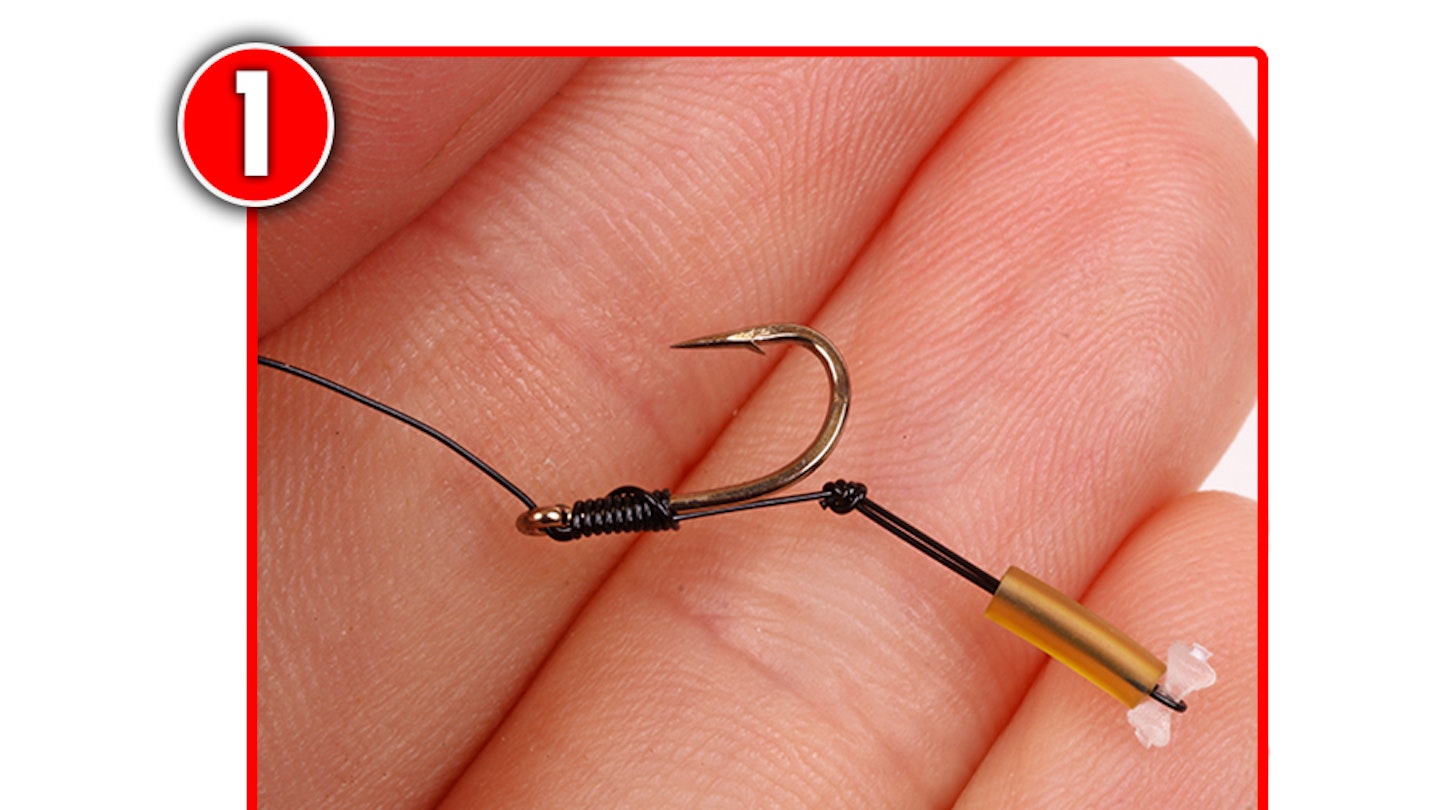When rivers are low and clear and the chub and barbel play hard to get there’s one fishing bait that I keep up my sleeve. The classic combination of hemp and casters can send even the most wary river fish loopy, and with practice you can work them up into a feeding frenzy. The key to this style of fishing is to be confident in what you are doing…
KEEP THE COST DOWN
Big fish love the taste of casters, but they can be expensive. For a full day’s fishing I would reckon on taking four pints, and maybe double that of hemp. Buying hemp in bulk and preparing it yourself keeps the cost down, and any left-over bait can be frozen and kept for the next trip, as I find both baits just as effective when they have been stored in this way.
SIT ON YOUR HANDS
It’s possible to get immediate bites when fishing hemp and caster, but this isn’t always a good thing. One benefit of using any small bait is that the fish will gain confidence in feeding on it over time.
The longer you can sit on your hands before catching that first fish, the more confident they will have grown and potentially the more you will catch. Think of this style of fishing as feeding a line, but not fishing it until later in the day. The longer the fish have to settle on that line, the more readily they will bite.
There are a couple of ways you can slice this cake. If you want to keep busy and the river is large enough, why not spend a couple of hours running a float down the inside line while feeding farther out? Alternatively, and often the only viable approach on small rivers, feed hemp and casters and don’t start fishing for an hour or more. It’s surprising how quickly time passes, and by feeding as soon as you arrive, by the time you are ready to go plenty of time will have already have elapsed.
At close range you’ll probably be able to loosefeed hemp and casters by hand or catapult. This creates little disturbance and creates a line of feed trundling down the swim.
In deeper or faster rivers a bait dropper makes life much easier – let it settle for a few seconds before lifting it out to give the bait time to escape tight to the deck.
On big rivers, switch to a blockend feeder and make regular recasts before attaching the hooklength. Aim at the same spot every cast and look out for tell-tale line-bites that mean the fish are nosing around.
HOOKING CASTERS
I keep a handful of casters back from the main feed and store them in a bait tub filled with water to keep them fresh and stop them turning.
Unless I am loosefeeding I will mix the hemp and casters together and feed them like this. Because they sink at different speeds, keep them apart if you are loosefeeding.
Three or four casters on a size 10 hook don’t look too unappealing, but there are better ways to present this bait that eliminate problems with small fish.
A favourite trick is to superglue three or four casters to a short hair rig. This is particularly effective when feeder fishing for barbel and not only keeps the bait on, but gives you a more substantial bait.
My normal hook choice is a forged size 10. I glue the casters to a piece of rig tube on the hair, which gives a stronger fixing. Alternatively, thread a plastic caster on to the hair and glue the bait to this.
Plastic casters are quite buoyant, so three will counterbalance the weight of the hook, making it easier for the fish to pick up. Artificial casters are my go-to hookbait when feeding these baits.
HOW TO GLUE CASTERS TO A HAIR RIG
Rather than try and cover every way that you can hook casters, let’s look at some of the best ways of presenting this bait for larger fish, such as chub and barbel.
.jpg?auto=format&w=1440&q=80)
Thread a 10mm length of 1mm diameter rig tube on to your hair to form the base that the casters can be stuck to.
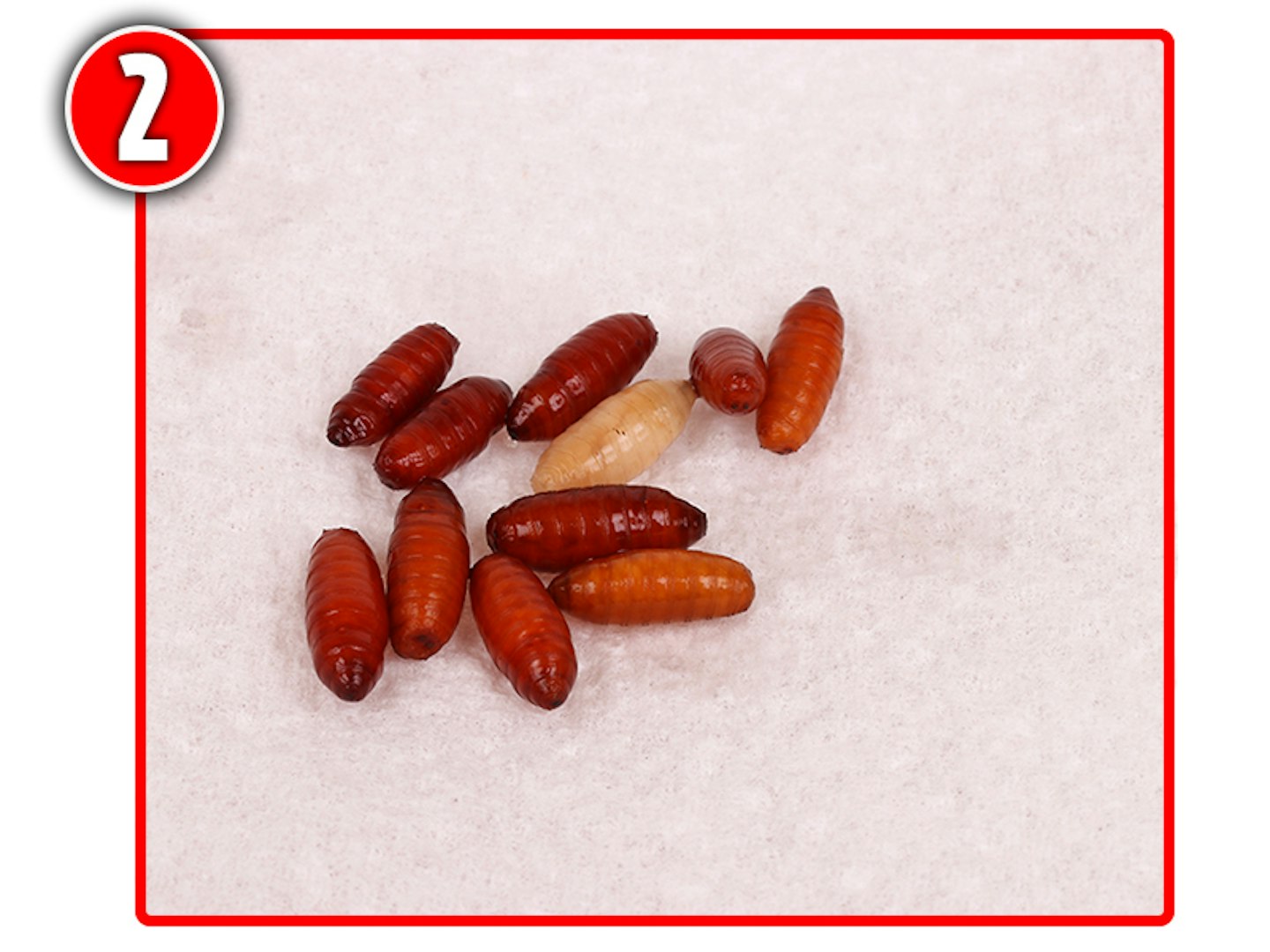
Dry a pinch of casters on blotting paper to remove any moisture.
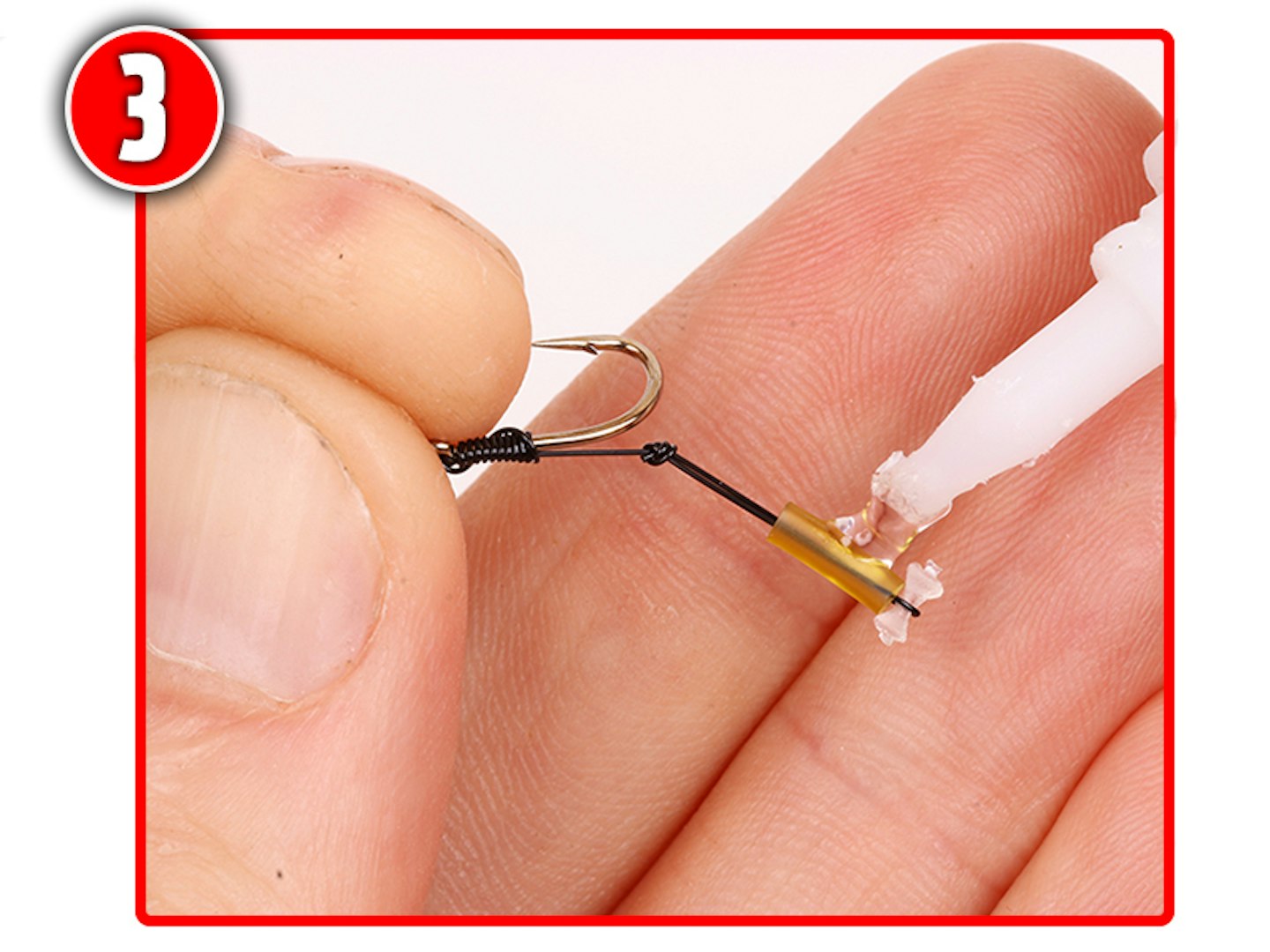
Add a blob of superglue gel to the tubing.
.jpg?auto=format&w=1440&q=80)
Carefully glue two casters side-by-side to the base of the rig tubing, like this.
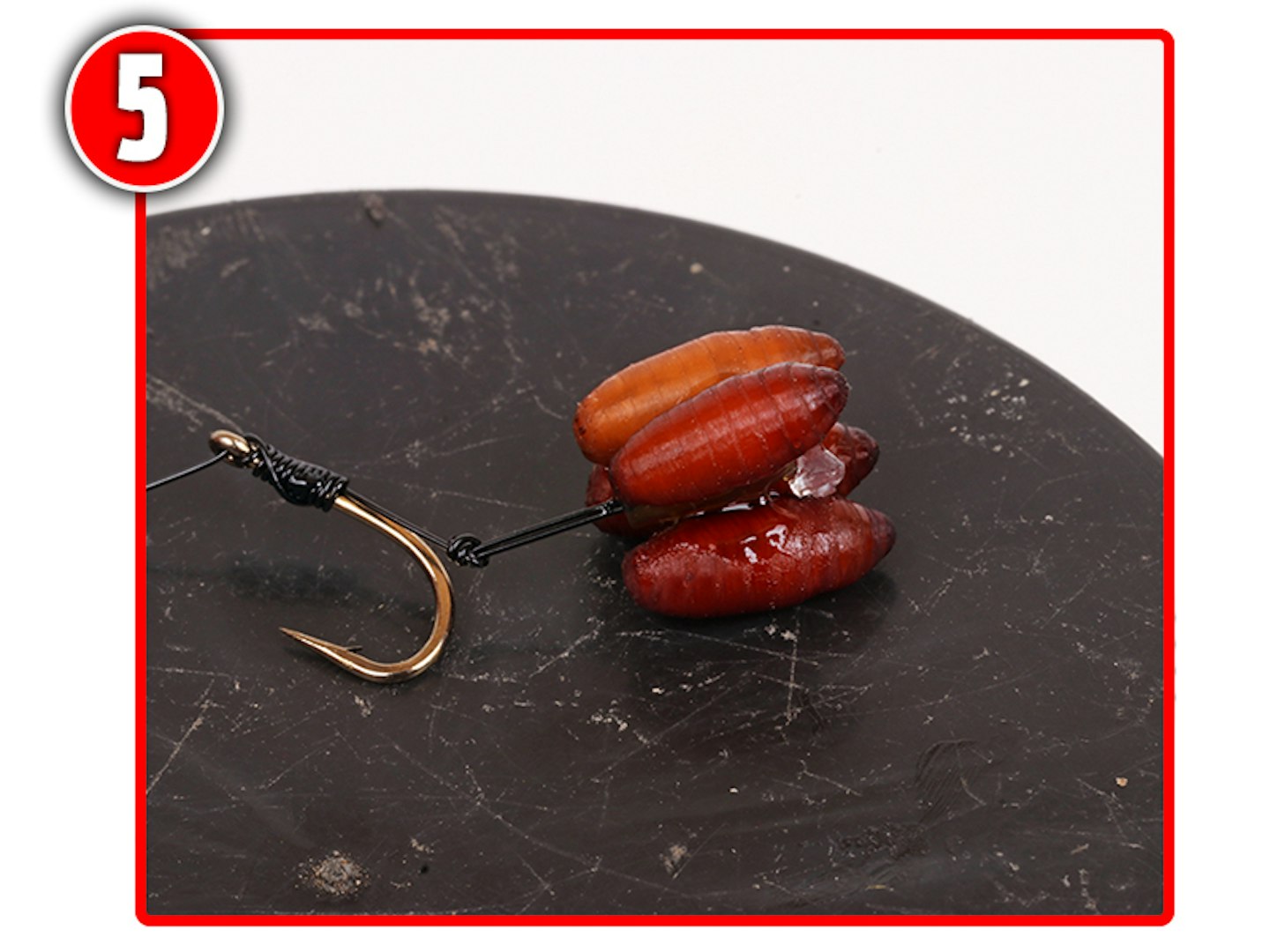
Once the glue has started to set, add two more casters to the top of the tube.
TWO OTHER TRICKS TO TRY...
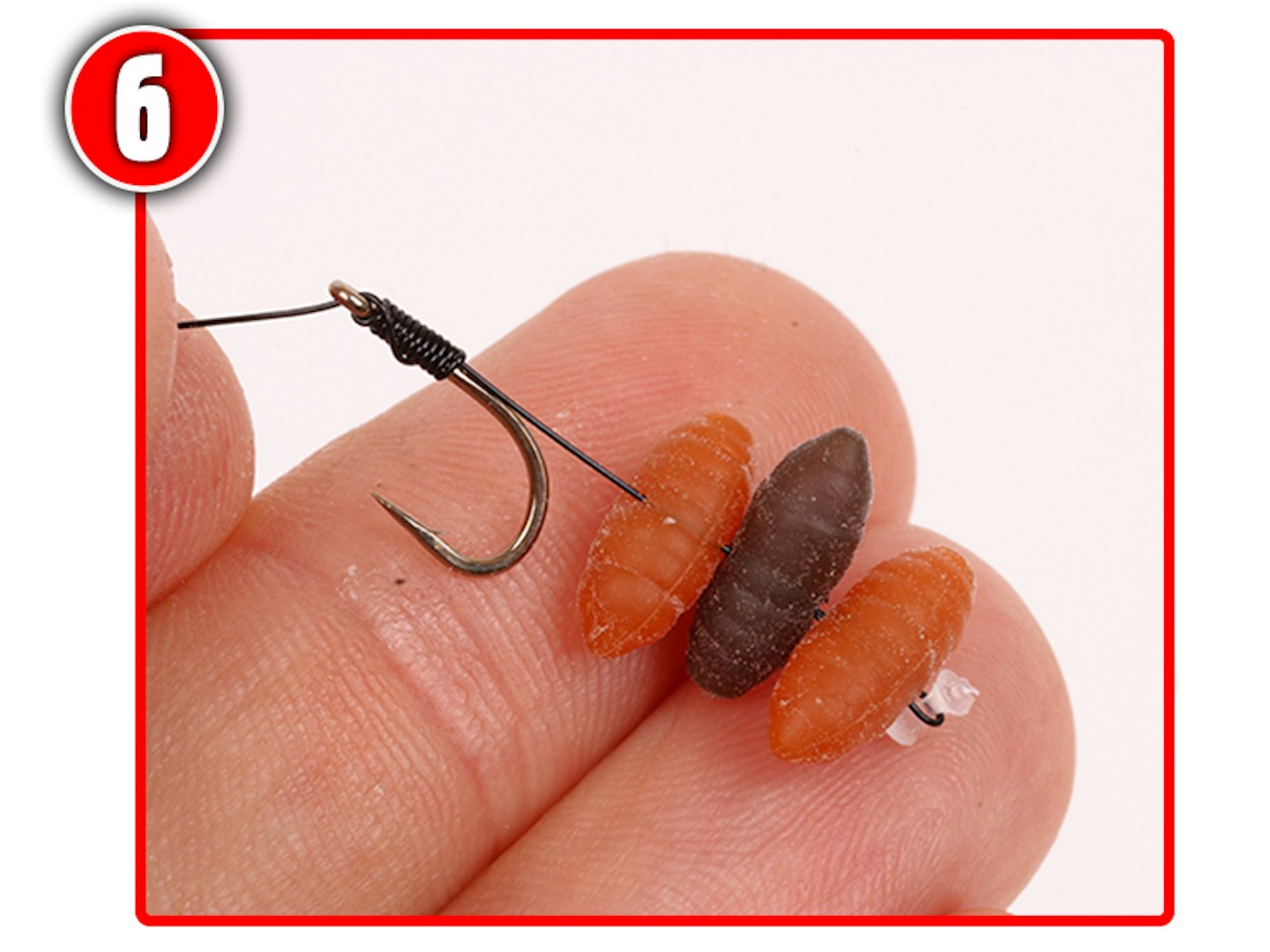
Fake Casters
Simply hair-rig two to four rubber casters sideways on. Use a size 12 hook for two baits, a 10 for three and an 8 for four rubber baits.
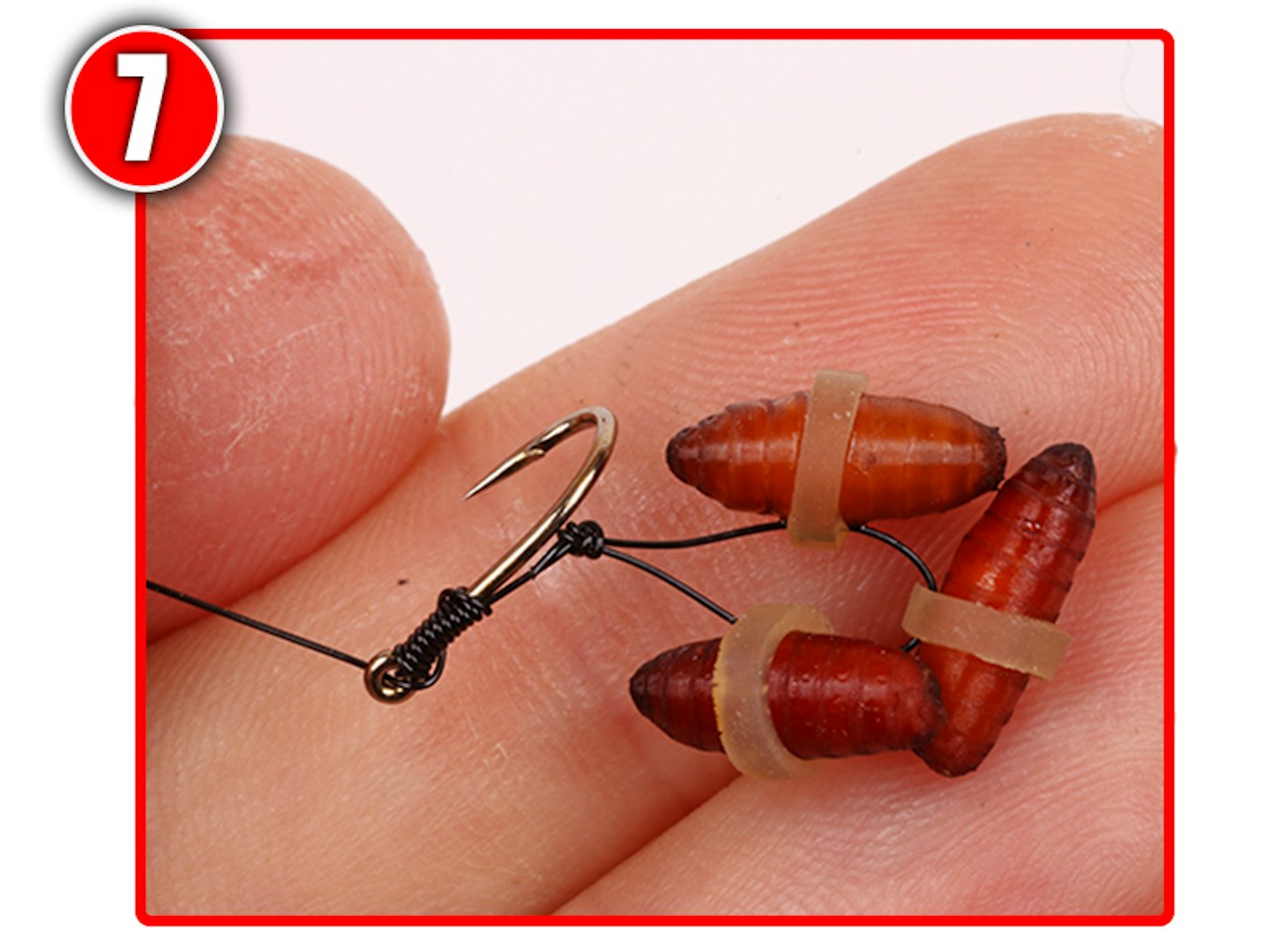
Bait Bands
Attach bait bands to a hair rig by tying them into an overhand loop. Casters can be added to each of the bands using a banding tool.
